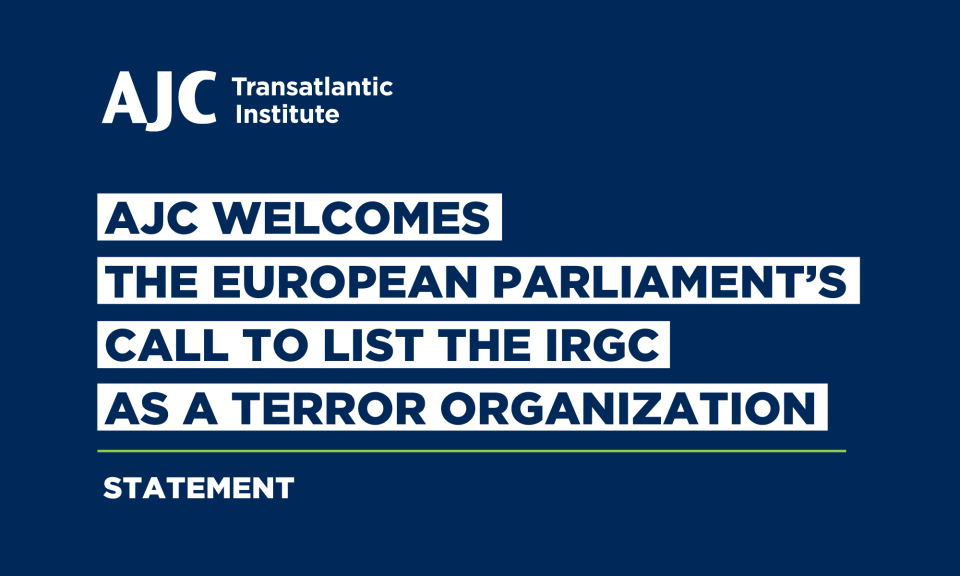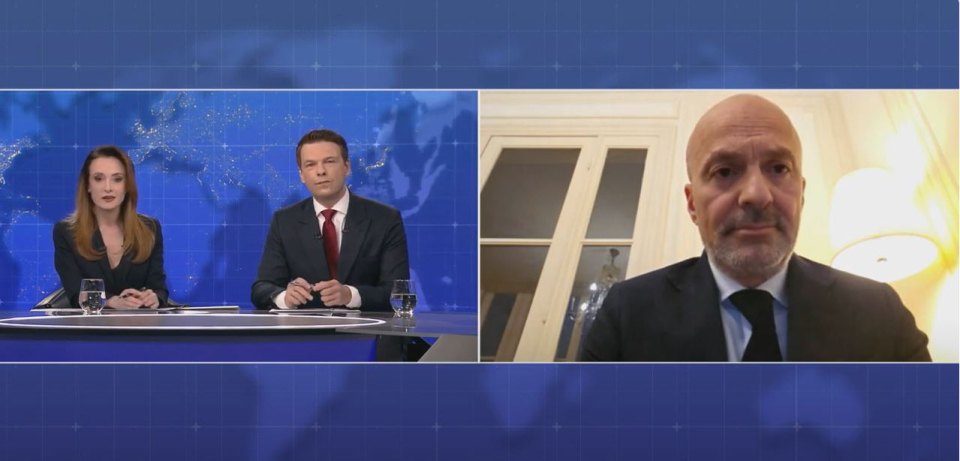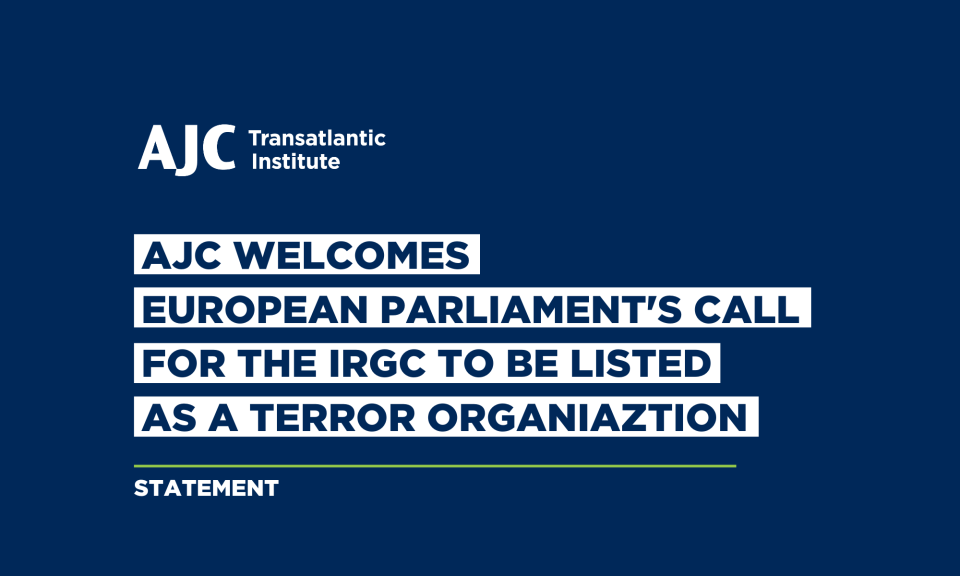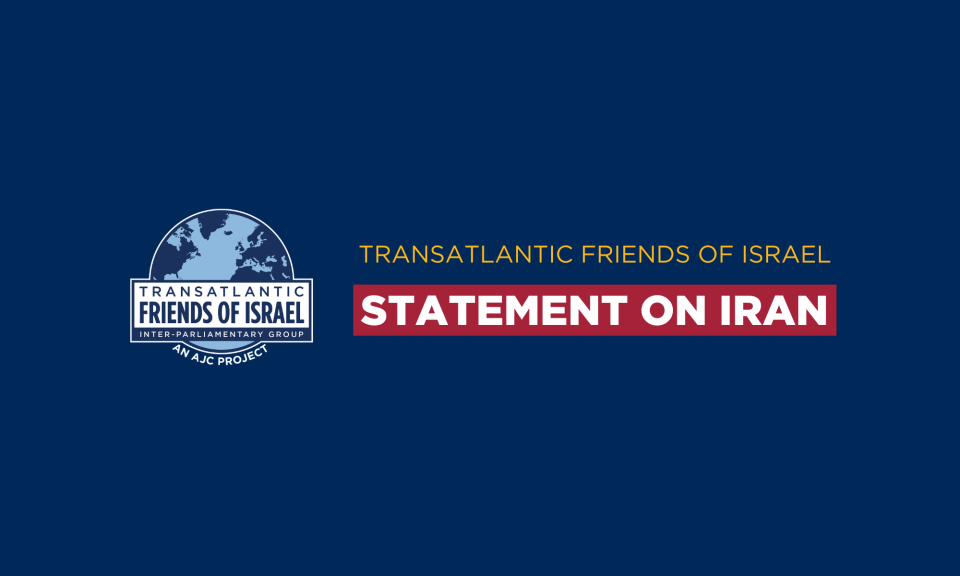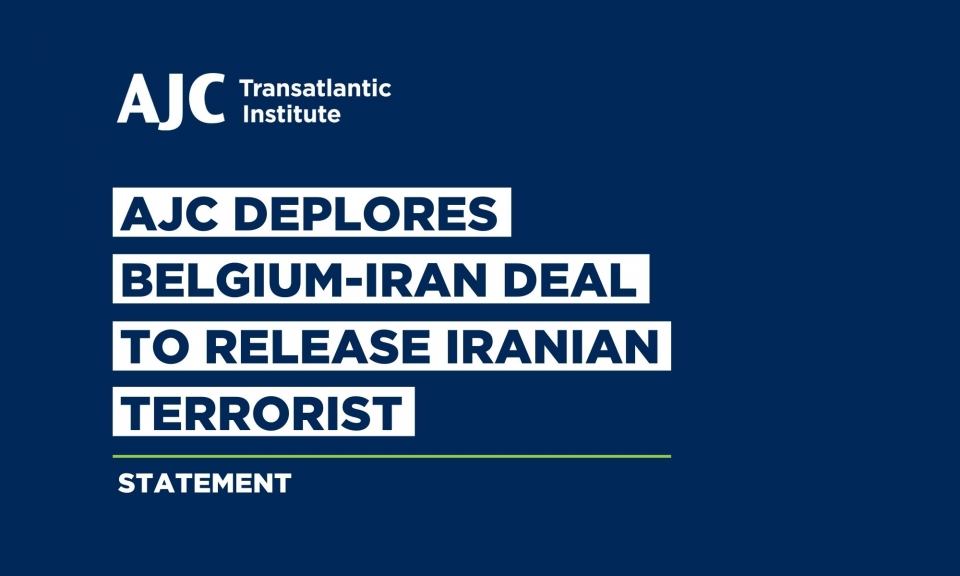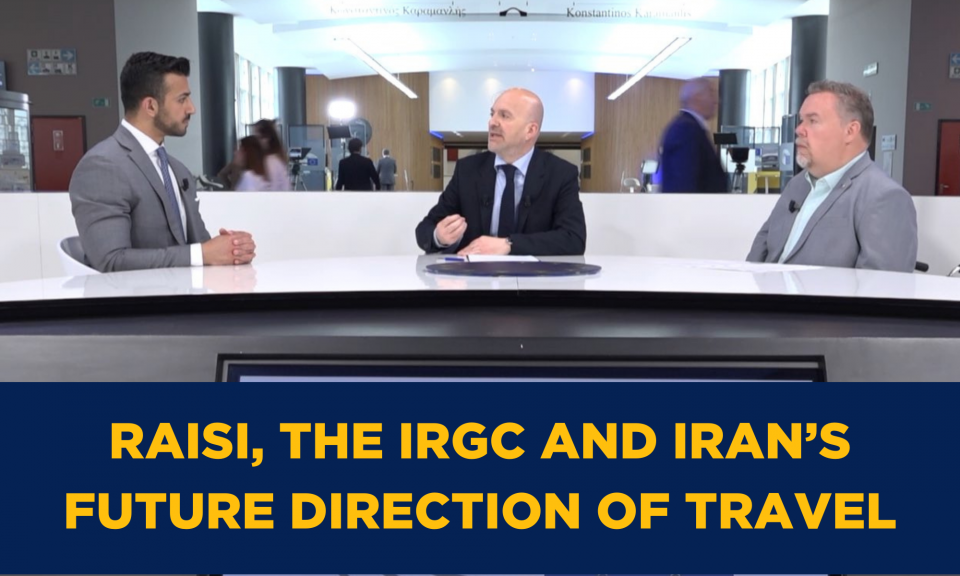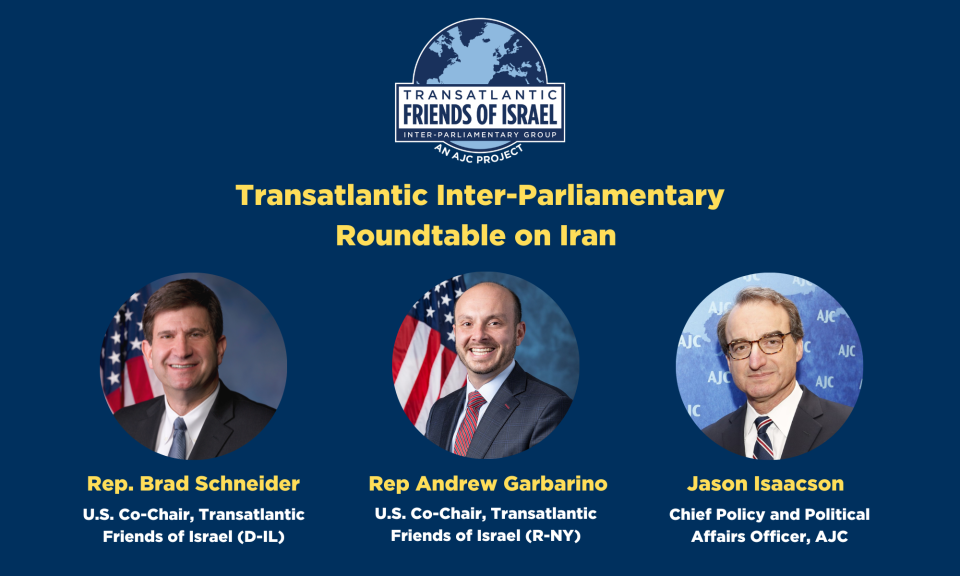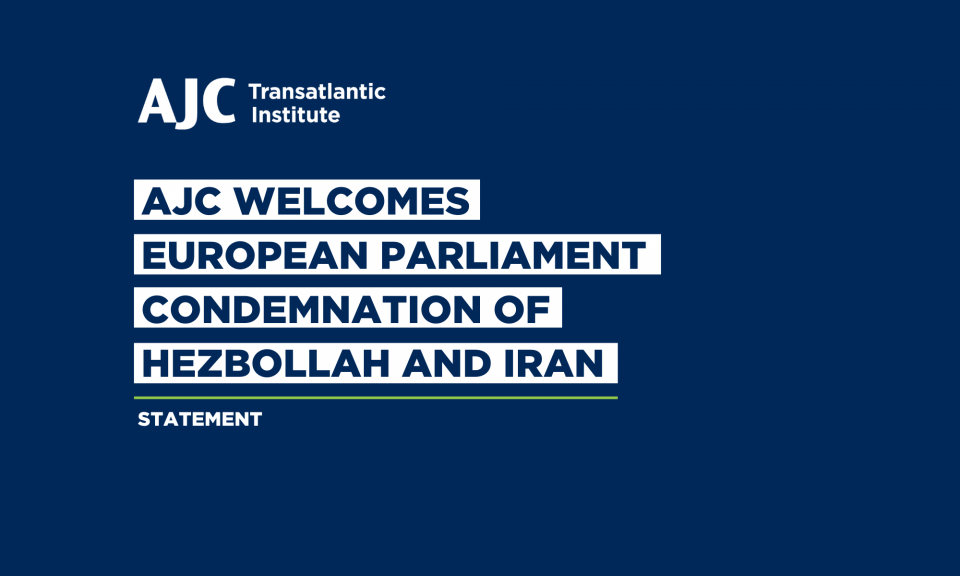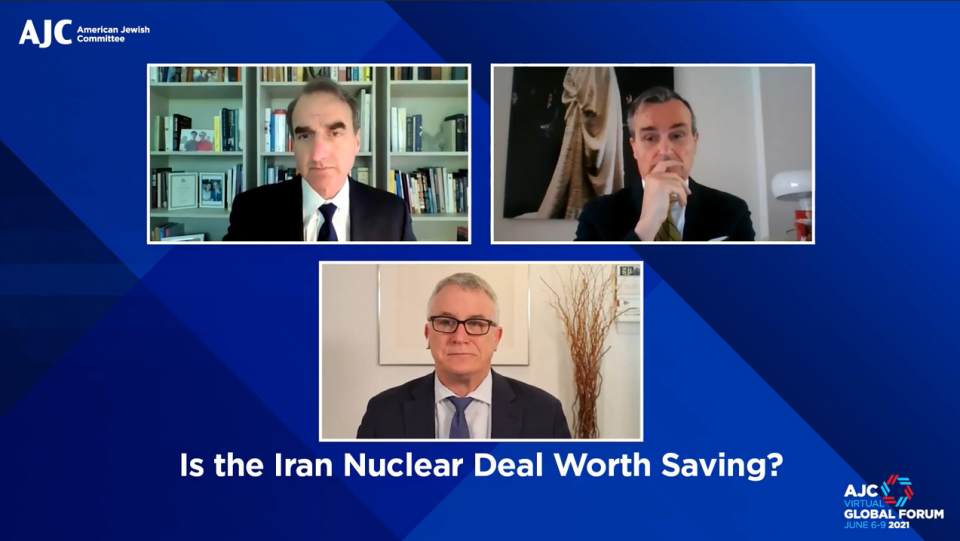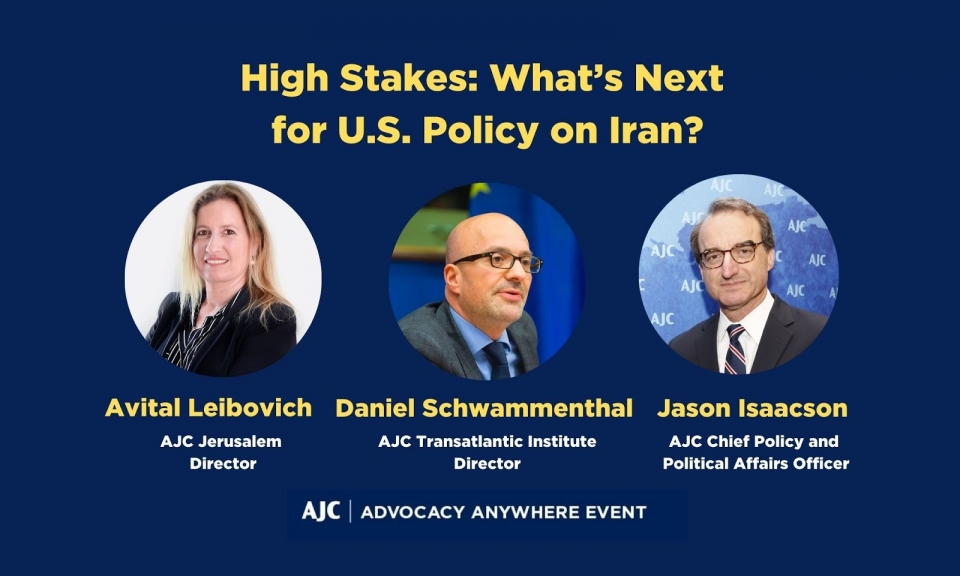Press releases
AJC on the Iran Nuclear Deal
August 5, 2015 – New York -- AJC Executive Director David Harris issued the following statement today on the P5+1 deal with Iran:
When the Joint Comprehensive Plan of Action (JCPOA) was announced in Vienna on July 14, AJC issued a press release indicating that we would first study the full text and its implications, and then take a position on the deal, as the U.S. Congress launched into its 60-day review period.
Over the past three weeks, AJC engaged in a very intensive, open-minded, and thorough process of external consultations and internal deliberations, involving many lay and staff leaders.
During this effort, we had the privilege of meeting privately with, first, Secretary of State John Kerry, and, later, Under Secretary of State Wendy Sherman, both of whom visited our New York headquarters. We also had the opportunity to speak with Democratic and Republican Members of Congress diplomats from Europe, the Arab world, and Israel and respected analysts knowledgeable about both nuclear diplomacy and Iran-related matters. And we were invited to participate in discussions in Washington with President Barack Obama and Secretary of Energy Ernest Moniz. We are grateful for all these opportunities.
We understood from the start that the Iran deal was not a simple matter. Rather, it was one of the most consequential policy issues in a generation. Thus, it could not be boiled down to a reflexive reaction for or against, or a glib one-line response.
We listened carefully to the arguments of those in favor of the deal, who, inter alia, asserted that Iran’s pathways to a nuclear bomb would be blocked for at least 10-15 years that it would use the cash windfall of unfrozen assets and the lifting of sanctions largely for domestic purposes that the Middle East would not witness the specter of nuclear proliferation that the inspection and verification regime would be the most intrusive ever developed, with the International Atomic Energy Agency (IAEA) up to the task, including ascertaining possible military dimensions of Iran’s past program and that perhaps Iran would, with time, open up to positive change and greater cooperation.
And we listened to the opponents, who asserted, inter alia, that this deal at best only delayed but did not dismantle Iran’s nuclear infrastructure that it in fact created a legitimate pathway for Iran to emerge as a nuclear threshold state even if it never violated the deal that at least some of Iran’s new infusion of funds would be used to stoke further terror and instability in the Middle East and beyond that America’s allies in the region were profoundly unsettled by the agreement and its broader implications and that there were concerns about Iran’s ability to deceive the international community, as it had done in the past at Natanz and Fordow, and as other countries, including North Korea and Syria, had also done.
In the end, AJC’s leadership concluded overwhelmingly that we must oppose this deal.
Much as we respect those in the P5+1, led by the United States, who painstakingly negotiated the agreement over the span of years, and who confronted one challenge after another with Iran and also, it should be noted, had to manage the complex interaction within the P5+1 itself, there are too many risks, concerns, and ambiguities for us to lend our support.
By abandoning the earlier negotiating posture of dismantling sanctions in exchange for Iranian dismantlement of its nuclear infrastructure, and instead replacing it with what is essentially a temporary freeze on its program, the P5+1 has indeed validated Iran’s future status as a nuclear threshold state, a point that President Obama himself acknowledged in a media interview.
Given the nature of the Iranian regime and its defining ideology, AJC cannot accept this prospect. It is too ominous, too precedent-setting, and too likely to trigger a response from Iran’s understandably anxious neighbors who may seek nuclear-weapons capacity themselves, as well as, more immediately and still more certainly, advanced conventional arms, adding an entirely new level of menace to the most volatile and arms-laden region in the world. Surely, this cannot be in America’s long-term security interests.
And by lifting the freeze on Iranian assets in relatively short order, removing sanctions will surely trigger many visits to Tehran, as evidenced already by German Vice Chancellor and Minister of Economy Sigmar Gabriel’s desire to be among the first. Furthermore, ending the ban on arms flow to Iran within five years and on missile technology, which would help its ICBM program, within eight years, will benefit the regime enormously – and without a demand that Iran change its destabilizing and dangerous behavior. This includes its frequent calls for “Death to America and Israel,” and its hegemonic ambitions in Iraq, Syria, Lebanon, Bahrain, and Yemen. AJC cannot accept this prospect, either.
We are told by the deal’s supporters that the only alternative to this deal is war. We respectfully disagree. We do not support war against Iran, nor have we ever advocated for the use of force, though we have always believed in a credible military option as a way of convincing Iran of our seriousness of purpose. But until recently, we were told by P5+1 negotiators: “The alternative to a bad deal is no deal.” What happened to that formulation, and why did it suddenly change?
We understand that opposing this deal raises important questions about the future that no one can answer today with certainty, much as we believe that, faced with strong American leadership, Iran would find it in its own best interests to return to the negotiating table sooner or later. But we know with greater certainty that this deal raises still more ominous questions about the future.
Therefore, AJC opposes the deal and calls on Members of Congress to do the same.
In doing so, we wish to make two additional points.
First, we fully understand that passions run high on both sides of the debate, but that should not be an excuse for personal attacks or inflammatory statements having no factual basis, whether voiced by the deal’s supporters or its opponents. What is needed is a full-blown and respectful debate about the issues, and not ad hominem accusations.
And second, it is in the American strategic interest, now more than ever, to maintain the closest possible links with our long-time allies in the region, including Israel, Egypt, Jordan, and the members of the Gulf Cooperation Council. Their geography, which is immutable, places them on the front line. Their ongoing political and security concerns – sometimes expressed publicly, sometimes privately – need to be carefully considered, both now and in the future. They need us, as, yes, we need them.
